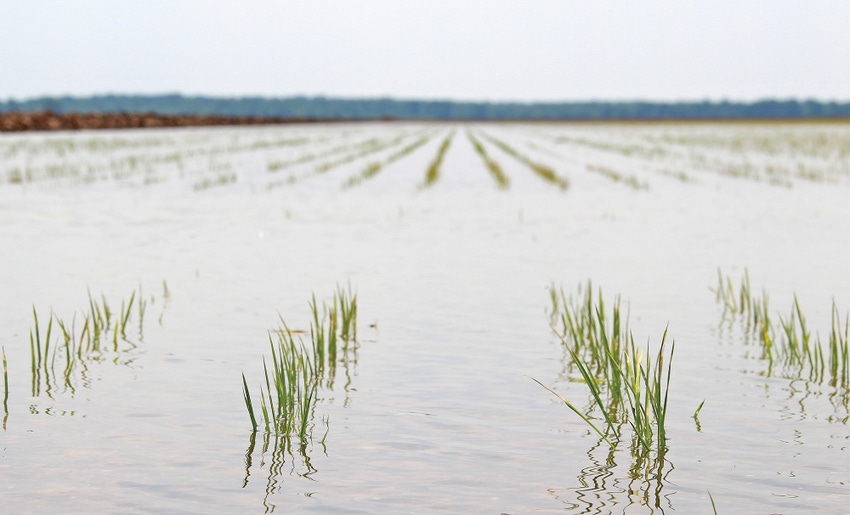
As the week began, Mid-South rice planting was nearing completion. USDA reported that as of May 24, planting was 95 percent complete in Arkansas, 99 percent in Louisiana, 91 percent in Mississippi, and 95 percent in Missouri.
Then rains set in Tuesday and continued through the week.
Many rice fields in Arkansas were on the verge of being ready for a permanent flood as the rain system approached, says Jarrod Hardke, Arkansas Extension rice agronomist.
“The short window to make both preflood herbicide applications and preflood nitrogen applications likely led some to wait until the system passed to move forward.” A big jump in flooded acreage will occur this week if farmers can get the ground dry enough to fertilize, he says.
Rice disease management checklist
LSU AgCenter’s Don Groth provides a checklist (10 questions I should ask before applying a fungicide) to help farmers deal with diseases in their fields. Find answers to questions such as “What disease is in my field?” and “Is my fungicide timing correct” in the latest Rice Disease Newsletter.
Delayed phytotoxicity syndrome
Groth also discusses severe herbicide damage to rice. If your rice is suffering from delayed phytotoxicity syndrome, find out what measures to take in the Rice Disease Newsletter.
Rice recovering some from paraquat+Sonic. L-05/21; R-05/28. Roots not good. Likely FirstRate #mscrops @DeltaSoil pic.twitter.com/W4qcJUKNQH
— MSU_Weeds (@MSU_Weeds) May 28, 2014Sheath blight management
Conditions are right for the development of sheath blight in rice, says Yeshi Wamishe, Arkansas Extension rice plant pathologist. He provides information for identifying sheath blight and what you can do to manage it in Pointers for sheath blight management.
Rice fields worth billions for ducks
A recent report says that to replace the contribution to wildlife habitat of flooded rice land would cost over $3.5 billion. Find out more about the value of your rice fields in Delta Farm Press Editor Elton Robinson’s Value of rice lands to waterfowl – something to quack about.
Herbicide injury and rice water weevils
Seeing herbicide injury in your fields? Rice water weevils? Read about what to watch for and what you can do in the latest Arkansas Rice Update.
Gramoxone on rice. New leaf not injured. Rice should recover fine pic.twitter.com/A1JXs3gA2N
— Bob Scott (@BscottBob) May 30, 2014Three rice field days in June
Rice farmers can learn about LSU’s AgCenter research projects that can help them produce better crops more efficiently at three field days in June. Find out which one best fits your schedule at LSU AgCenter’s three rice field days.
Arsenic and rice
FDA and Consumer Reports released tests in September 2012 revealing levels of inorganic arsenic in rice. Consumers were confused and concerned. They need not be, says a prominent food safety and toxicology consultant. Read a report on his findings: Concerns unwarranted over effects on health from inorganic arsenic in food.
About the Author(s)
You May Also Like




